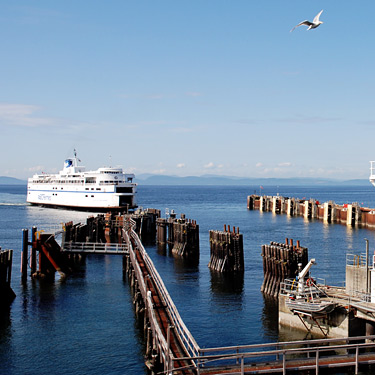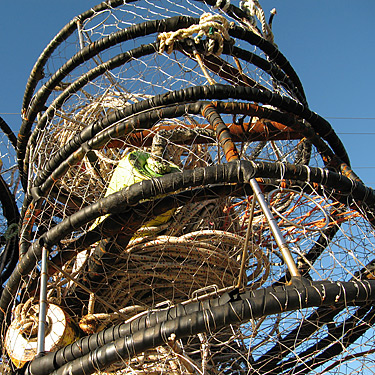user engagement
In keeping with the project’s commitment to a collaborative and transparent approach, the Project Team requested input from user groups about their needs and interests related to displaying and analyzing their marine use. The BCMCA developed two strategies for engaging user groups as described below. The BCMCA User Group Enagement Plan (PDF) also provides more information.
group-by-group engagement

photo by Jen LeMercier / Rocketday
The first strategy was a Group-by-Group engagement process. This strategy began with the BCMCA’s efforts to identify and contact representative organisations and advisory boards for marine user groups in BC, introduce the BCMCA project to them, and invite their feedback. This was also the strategy through which the BCMCA solicited user groups’ reviews of the data assembled by the BCMCA representing their marine use.
The BCMCA compiled a list of the Frequently Asked Questions posed by participants at the numerous meetings attended by the BCMCA as part of the Group-by-Group engagement process.
human use data working group
Feedback from the early Group-by-Group engagement efforts (2008) indicated that user groups were interested in becoming more involved in the BCMCA. In response to this interest, the BCMCA Project Team convened a committee of user group representatives — called the Human Use Data Working Group — that provided overarching direction and advice to the Project Team about the analysis of human use data.
The Working Group assisted to guide the operation of the Human Use Data Working Group (see Human Use Data Working Group: Terms of Reference (PDF)). The Working Group was lead by a neutral facilitator and designed to be broadly representative of user groups. Participants were not expected to represent a constituency in any formal capacity. Two representatives were invited from each of the six human use sectors that the BCMCA identified: commercial fisheries, recreational fisheries, shipping and marine transportation, energy, marine and foreshore tenures, and recreation and tourism.

photo by Natalie Ban
Two of the Working Group representatives — with the support of the rest of the Working Group — participated on the Project Team. This helped to ensure the project’s commitment to inclusivity and facilitated communication between the Project Team and the Working Group sector representatives.
The Working Group provided an opportunity for inter-sectoral dialogue and strategic input to the BCMCA project. Its focus was on the use of human use data in Marxan analyses. In these ways, it intended to complement the BCMCA’s more specific engagement efforts and data reviews with individual user groups through the Group-by-Group engagement process. The Working Group was very active and participated in regular in-person and teleconference meetings (2008-2011).
The User Group organizations that participated in the Working Group are:
- British Columbia Marine Trades Association (recreational boating)
- British Columbia Salmon Farmers Association (aquaculture)
- British Columbia Seafood Alliance (commercial fisheries)
- Coast Forest Products Association (forestry)
- Council of Marine Carriers (tug and barge operators)
- Ocean Renewable Energy Group (wave and tidal energy)
- Shell Canada (offshore oil and gas)
- Sport Fishing Advisory Board (recreational fishing)
- Underwater Harvesters Association (commercial fisheries)
- Wilderness Tourism Association (tourism)
